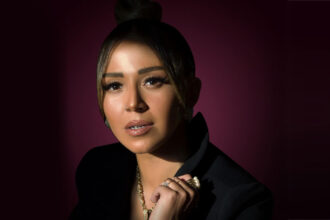In the thriving healthcare ecosystem of the United Arab Emirates, progress is not measured solely by the number of new hospitals or the sophistication of cutting-edge medical technology. It is also defined by something less visible but far more enduring—the transfer of knowledge. At the heart of this mission are the UAE’s dedicated physicians, who are not only clinicians and researchers but also mentors, educators, and role models for the next generation of healthcare professionals.
From lecture halls to surgical suites, from rural outreach to digital classrooms, UAE doctors are deeply involved in shaping the doctors, nurses, and medical scientists of tomorrow. This article explores how these medical leaders are preparing the next wave of talent, the systems that support them, and the long-term impact of building a culture rooted in education and mentorship.
A Legacy of Learning: Medicine Beyond the Clinic
Throughout history, medicine has been as much about apprenticeship as it has been about theory. In the UAE, this tradition continues—only now, it is housed within state-of-the-art teaching hospitals, simulation labs, medical universities, and digital platforms that reach across borders.
Doctors across the Emirates are engaging in a range of educational roles:
- Clinical mentors guiding residents through their first patient encounters
- Academic lecturers delivering core science and ethics instruction
- Research supervisors helping students develop evidence-based practice
- Workshop facilitators training the next specialists in procedural skills
- National board examiners helping maintain standards and certification
- Community educators raising awareness of healthcare professions in schools
Their impact is not limited to technical training—it extends to shaping professionalism, empathy, leadership, and lifelong learning habits.
Mentorship in Medical Residencies and Fellowships
In hospitals across Abu Dhabi, Dubai, and Sharjah, medical residency and fellowship programs are supervised by seasoned physicians who serve as both instructors and career mentors.
These specialists guide younger doctors in:
- Diagnosing complex or ambiguous cases
- Handling emergency situations
- Performing surgeries or procedures
- Communicating with families
- Navigating ethical dilemmas
- Managing stress and burnout
Mentors also provide feedback during morning rounds, grand rounds, and morbidity and mortality conferences, ensuring continuous learning in real-time environments.
Dr. Amina Nasser, a cardiologist and fellowship mentor in Dubai, explains:
“Teaching a young doctor how to save a life is important. But teaching them how to stay curious, humble, and compassionate—that’s what truly lasts.”
Medical Schools and Clinical Education
The UAE is now home to several high-caliber medical universities, offering programs in collaboration with international partners. In these institutions, local physicians serve as core faculty, playing crucial roles in:
- Designing curricula based on local health challenges
- Delivering lectures and bedside teaching
- Conducting clinical skill labs and simulations
- Guiding students through research projects
- Leading final-year electives and exit evaluations
These academic physicians ensure students receive a balanced mix of theoretical foundation and clinical exposure. Many work with multidisciplinary teams to promote collaborative care models, echoing real-world dynamics.
Simulation-Based Learning: A Modern Educational Frontier
Many UAE doctors are embracing simulation-based education, where medical students and residents practice procedures and decision-making on high-tech mannequins and digital avatars before working on real patients.
Doctors serve as facilitators in simulations such as:
- Cardiac arrest resuscitations
- Emergency deliveries
- Trauma triage
- Laparoscopic surgical practice
- Pediatric seizure response
Dr. Omar Al Zaheri, who manages a simulation lab in Abu Dhabi, says:
“Simulation allows students to make mistakes safely. It also teaches critical teamwork and leadership—skills that matter just as much as knowledge.”
Doctor-Led Research Mentorship
UAE physicians are also shaping future healthcare through research mentorship. From undergraduate theses to complex clinical trials, they guide students in:
- Identifying research questions
- Writing protocols and securing approvals
- Collecting and analyzing clinical data
- Publishing in peer-reviewed journals
- Presenting at local and international conferences
These efforts ensure that scientific thinking becomes a core competency among future doctors and that the UAE contributes meaningfully to global medical literature.
Early Exposure and Career Counseling for High School Students
In an effort to inspire future medics even before they enter university, many physicians volunteer in school outreach programs, where they:
- Conduct health awareness seminars
- Explain the day-to-day life of a doctor
- Offer shadowing opportunities
- Mentor students for university entrance exams and interviews
Programs like these, often supported by hospitals or government initiatives, give young people a realistic and inspiring view of the medical profession.
Women Mentoring Women in Medicine
As the number of female doctors in the UAE continues to rise, women mentors are playing a critical role in supporting the next generation of female healthcare professionals.
Female mentors offer:
- Guidance on navigating gender dynamics in the workplace
- Support during pregnancy or maternity leave in training
- Encouragement in pursuing leadership positions
- Advice on work-life integration
Dr. Noura Al Hammadi, a pediatrician and medical professor, says:
“A young woman entering medicine needs to see that it’s possible to have a family, lead a department, publish research, and still be fulfilled. That’s what mentorship gives her—the roadmap.”
Training Through Outreach and Rural Health Rotations
Doctors are also mentoring students and junior doctors through community rotations, particularly in remote or underserved areas of the UAE. These programs expose trainees to:
- Primary care in low-resource environments
- Preventive health campaigns
- Patient education and public health messaging
- Cultural sensitivity and community engagement
Such experiences build both technical flexibility and emotional maturity.
Online Education and E-Mentorship
With the growth of digital tools, many UAE physicians now mentor students virtually, using webinars, video consultations, and online courses. They serve as:
- Guest faculty in virtual classrooms
- Career coaches through mentorship platforms
- Hosts for live surgical broadcasts and Q&A sessions
- Contributors to online content libraries in Arabic and English
E-learning has made mentorship scalable and inclusive, reaching even those in rural areas or working part-time due to personal commitments.
Continuing Medical Education (CME) for Peers and Juniors
Mentorship doesn’t stop after graduation. UAE doctors are deeply involved in CME programs, ensuring that healthcare professionals at all levels continue to learn and adapt.
They lead CME activities such as:
- Case study presentations
- Specialty workshops
- National conferences and symposiums
- Journal clubs and literature reviews
- Certification preparation courses (e.g., ACLS, BLS, MRCP, USMLE)
By sharing their expertise, senior doctors build a culture of lifelong learning.
Policy and System-Level Contributions
Beyond clinical teaching, UAE doctors also contribute to the structural development of medical education, by:
- Advising medical licensing authorities
- Sitting on academic accreditation boards
- Designing national fellowship curricula
- Leading ethics and professionalism modules
- Conducting needs assessments for future specialties
Their leadership ensures the future of medical education in the UAE remains relevant, rigorous, and aligned with international standards.
Challenges in Mentorship and Medical Training
Despite the passion and effort, there are challenges:
- High patient volumes may limit teaching time
- Balancing service delivery with education
- Resource disparities between public and private institutions
- Need for more structured mentorship training for doctors
- Emotional burnout in mentors without institutional support
Nonetheless, the overwhelming commitment of UAE physicians ensures that mentorship continues—even when informal, unpaid, and after-hours.
The Ripple Effect: A Generation Empowered
The cumulative impact of this mentorship culture is already visible:
- Higher-quality graduates entering the healthcare workforce
- Increased medical research output from UAE-based institutions
- More Emiratis entering specialized fields like oncology, psychiatry, and neurosurgery
- Retention of junior doctors through meaningful career guidance
- Emergence of student-led initiatives reflecting empowered learning
Ultimately, the UAE is cultivating not just future doctors—but future leaders, innovators, and educators in healthcare.
Conclusion: Building the Future, One Student at a Time
Behind every skilled physician is a mentor who believed, guided, and taught. In the UAE, these mentors are building more than just clinical skills—they’re shaping values, confidence, and professional identity.
Through formal programs and quiet conversations, in lecture halls and emergency rooms, in classrooms and on video calls, UAE doctors are planting the seeds for a healthcare system that is self-sustaining, knowledge-driven, and human-centered.
As the nation looks to the future—with expanding hospitals, cutting-edge technologies, and ambitious health goals—it is the invisible scaffolding of mentorship and teaching that will ensure the system thrives.
The doctors mentoring today are, in fact, training the very hands that will carry the nation’s health forward tomorrow.
his news report is brought to you by The Dubai Headlines.








